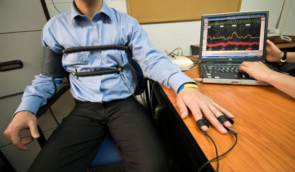De-occupation, war crimes and international support: topics discussed at the Fourth International Forum of the International Crimea Platform Expert Network
On 28 August 2025, the Fourth International Forum of the International Crimea Platform Expert Network was held in Kyiv. The event was organised by the Crimea Platform Expert Network with the support of the Crimea Platform Office, the Mission of the President of Ukraine in the Autonomous Republic of Crimea, the Ministry of Foreign Affairs of Ukraine, the Mejlis of the Crimean Tatar People, and the Media Center Ukraine.
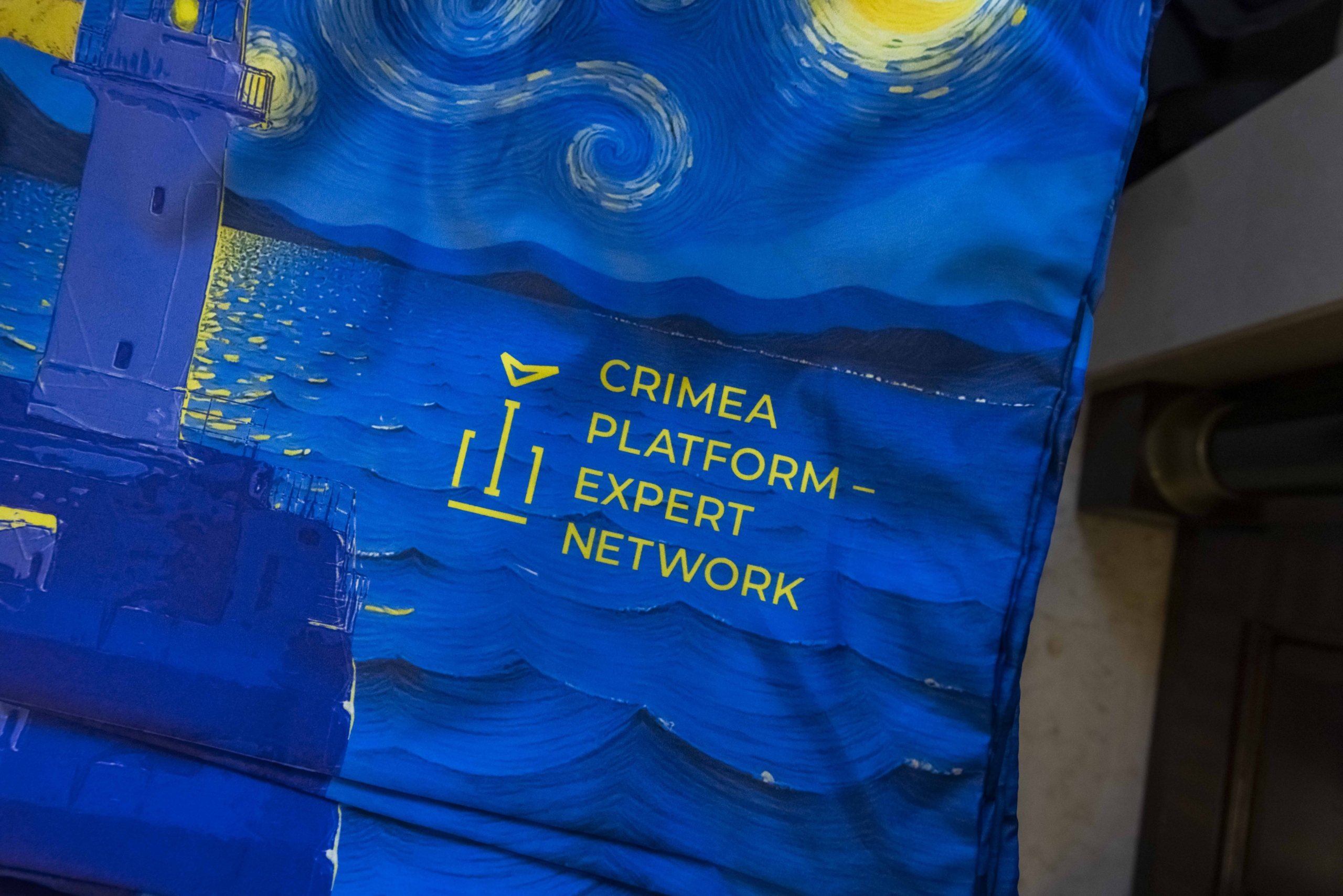
The forum was attended by representatives of the authorities, international organisations, the human rights community, including the Human Rights Centre ZMINA, academia and journalists.
The programme included four panels covering key challenges related to the occupation of Crimea, Russia’s war against Ukraine, and international support in countering the aggression.
During the opening of the event, Deputy Head of the Office of the President of Ukraine Ihor Zhovkva called on the international community to become more actively involved in the release of prisoners and civilians unlawfully held by Russia: “We call on the international community to fight even more actively for the release of civilians — journalists, human rights defenders, abducted children, as well as prisoners of war… Unfortunately, there has been no significant progress to date“.
He also emphasised: “Crimea has always been and remains part of Ukraine. Ukraine will not accept any legitimisation of the occupation“.
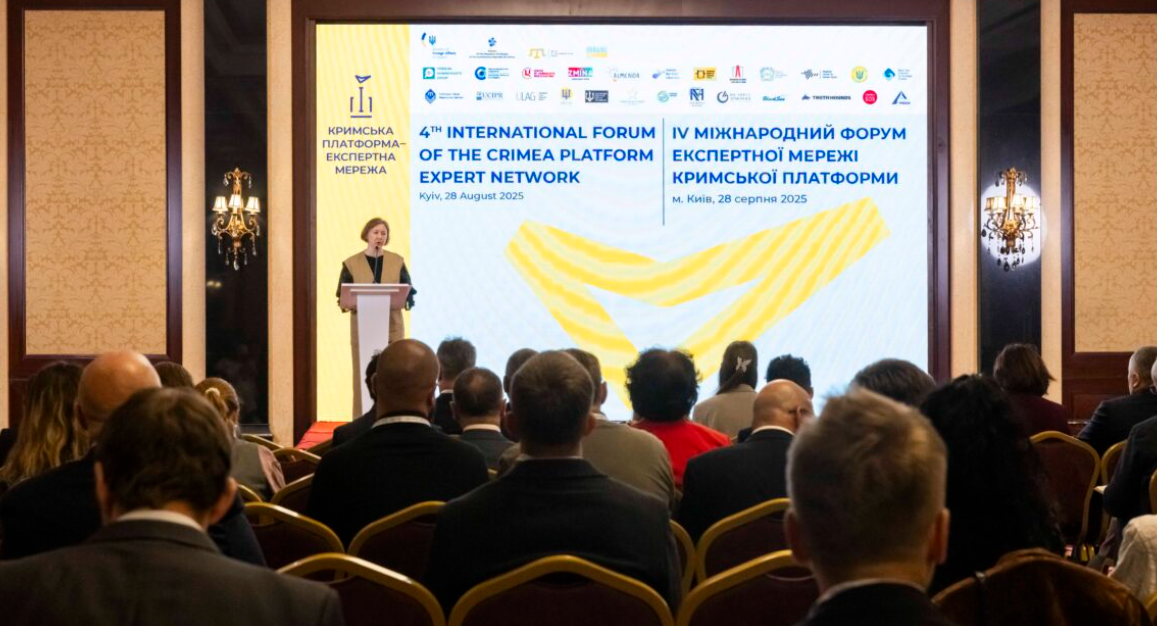
The Permanent Representative of the President in the Autonomous Republic of Crimea, Olha Kuryshko, drew attention to the fate of more than 200 Crimean political prisoners: “It is important to talk about them not only as statistics, but to name them“.
Deputy Minister of Foreign Affairs Mariana Betsa emphasised that documenting war crimes today is the foundation for future accountability of the Russian Federation: “All violations are now thoroughly documented in UN reports and briefings. This is important work because documenting crimes is the future evidence base for court proceedings“.
She also stressed the need for international recognition of the deportation of Crimean Tatars as genocide.
Former political prisoner and freelance journalist for Radio Liberty, Vladyslav Yesypenko, stated that Russia has created unbearable living conditions and persecution of Crimean Tatars in Crimea. Often, FSB officers force men to take responsibility for non-existent crimes, threatening to harm their wives or children.
“I spent more than four years behind bars in Russia for a crime I did not commit. In Russia and under occupation, anyone who does not support Putin’s policies is accused of terrorism and sentenced to long prison terms. Right now, there’s a selective genocide of Crimean Tatars going on in Crimea. People, often strangers to each other, are accused of being part of the Hizb ut-Tahrir organisation and sentenced to long prison terms,” said Vladyslav Yesypenko.
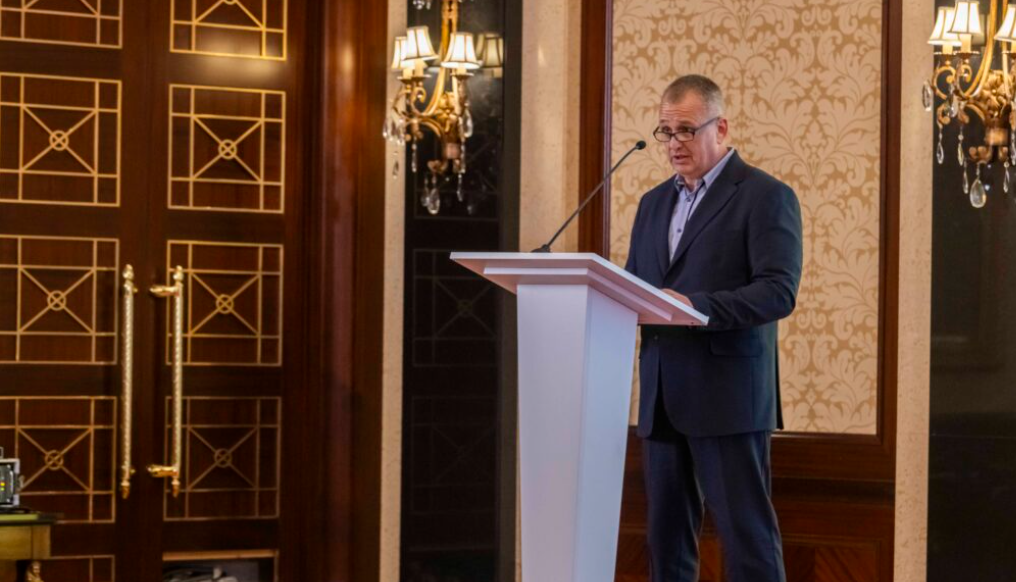 Vladyslav Yesypenko
Vladyslav YesypenkoThe first panel, “War of Attrition: How Can Ukraine Neutralize the Threat Without a Truce”, discussed a new strategic framework that should focus on gradually weakening Russian capabilities and strengthening Ukraine’s resilience.
First Deputy Minister of Defence Lieutenant-General Ivan Gavrilyuk emphasised that despite the Kremlin’s attempts to strengthen its defence-industrial complex, Russia’s military potential is declining. Alina Frolova, Coordinator of the Crimea Platform Expert Network Security Track, noted that the lack of a clear strategic goal in international military support is harmful to Ukraine: “The slogan ‘We will give as much as is needed’ indicates that there is no strategic goal… the strategic goal should be the functional defeat of Russia“.
The task of the international community is to create for Russia such realities that it will be forced to accept. At the same time, Europe and Ukraine must rely on their own resources because the United States is no longer a reliable partner. James Sherr, Senior Fellow at the International Centre for Defence and Security, expressed this opinion.
“The Trump administration can no longer be relied upon as the foundation of Western security. We cannot be sure that they are reliable partners. Therefore, it is necessary for Europe and Ukraine to act together and develop their own resources and capabilities,” said James Sherr.
Western partners do not perceive the war in Ukraine as one that will determine the world order. This approach does not allow Ukraine to act fully on the battlefield and in the diplomatic arena, said Mykola Bielieskov, Expert at the National Institute for Strategic Studies and Senior Analyst at the Come Back Alive Initiative Centre.
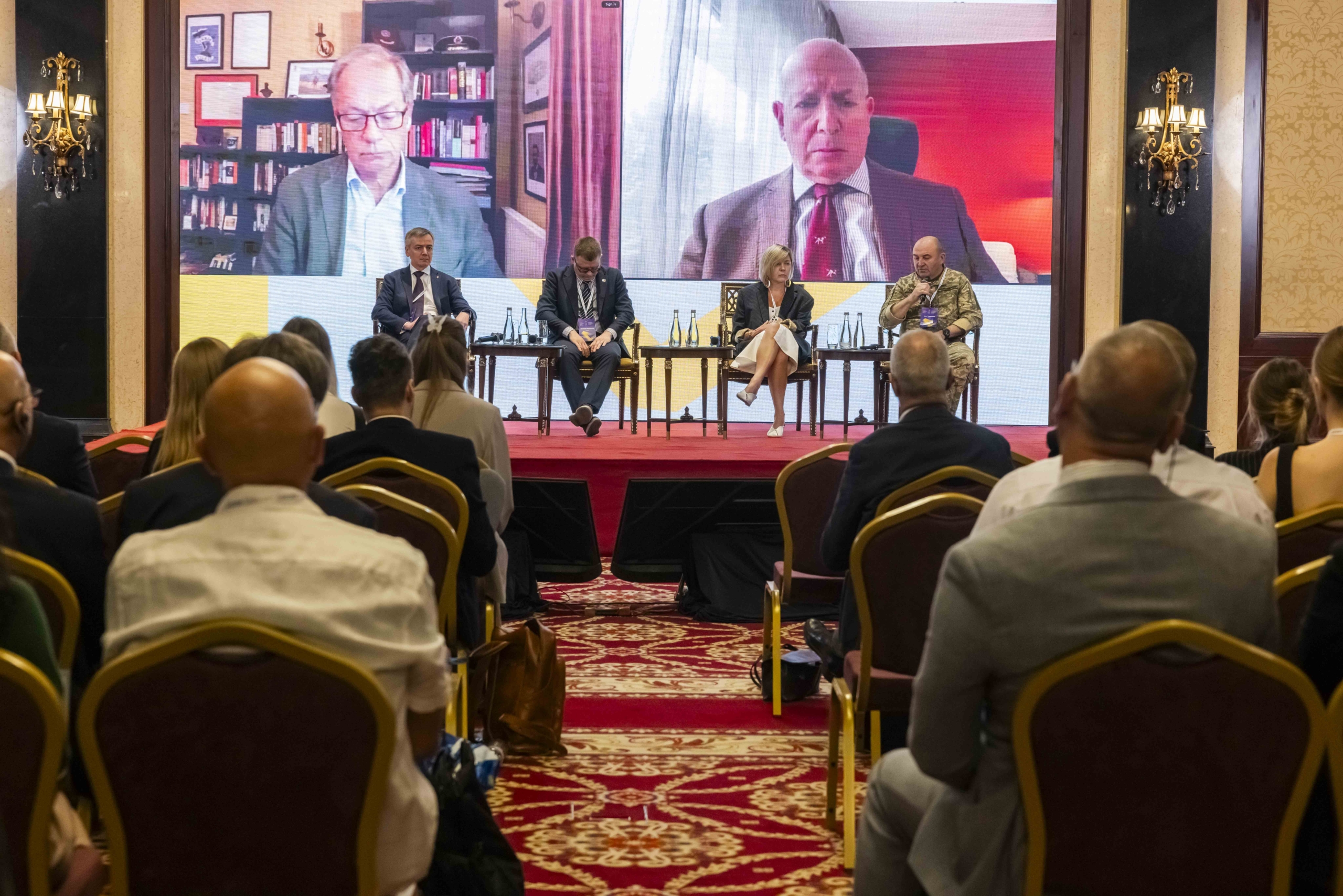
The second panel, “The Crimean Precedent — A Key to a Just Peace”, focused on the consequences of the occupation of the peninsula, which in 2014 set a dangerous precedent and undermined the foundations of international law.
Speaking during this panel, ECtHR Commissioner Marharyta Sokorenko emphasised the uniqueness of the fact that the European Court had ruled on Crimea even before the end of the hot phase of the war.
The Permanent Representative, Olha Kuryshko, emphasised that Crimea is a test of justice for the whole world, and that the Russian Federation must be held accountable for its crimes. She stressed that the Mission is constantly looking for mechanisms of safe communication for people who are in the temporarily occupied territories or have left them. Olha Kuryshko stressed the importance of developing reintegration policies and implementing transitional justice now, before the physical liberation of the territory.
“The work of the Mission as an institution that has already figured out how to work with the territory that will be liberated, not only in terms of infrastructure but also in cognitive dimension, can become the basis for shaping state policy regarding all temporarily occupied territories”, concluded Olha Kuryshko.
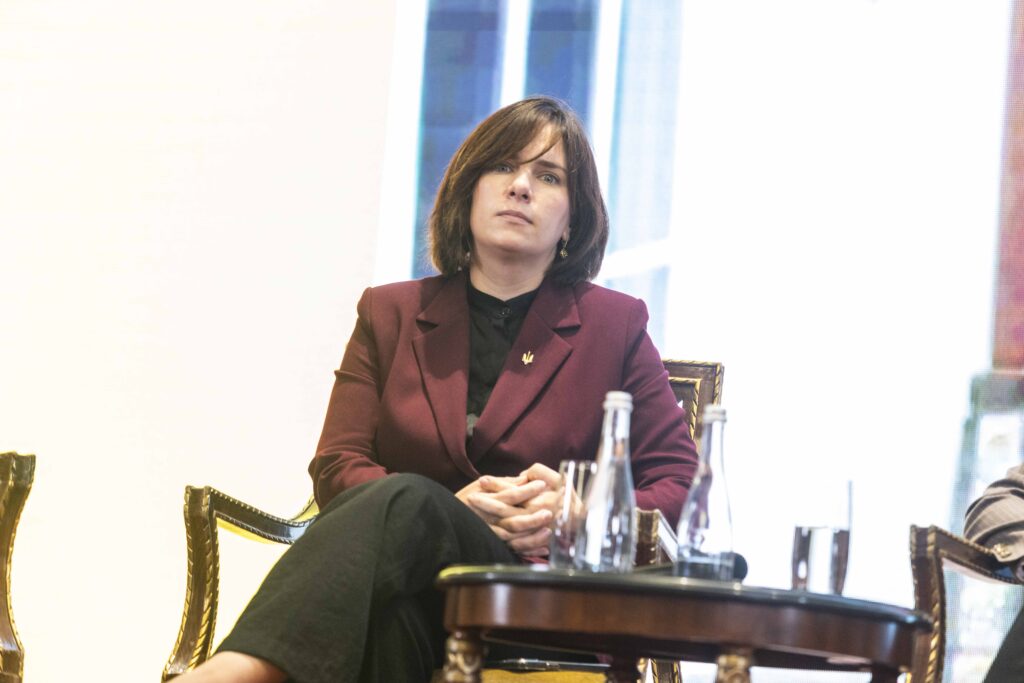 Olha Kuryshko
Olha KuryshkoTruth Hounds Legal Director Zera Kozlyieva raised the issue of the treatment of civilians in the temporarily occupied Crimea. According to the speaker, the main responsibility of our state is to ensure accountability for crimes committed by the Russian Federation against the residents of occupied Crimea: torture, crimes against humanity, etc. In her words, it is important to document these crimes: thanks to this, Ukraine will be able to bring the perpetrators to justice in the future.
Mariia Krasnenko, an expert on internal displacement and integration, outlined the issue of a sense of justice for people affected by Russia’s aggression. For people from the occupied territories, it is extremely important to remain on the media agenda and receive support from the state: legal and financial assistance when leaving the TOT. Ukraine must also develop a clear state policy on the temporarily occupied territories — the direction of movement is important for citizens to understand the direction in which our state is moving.
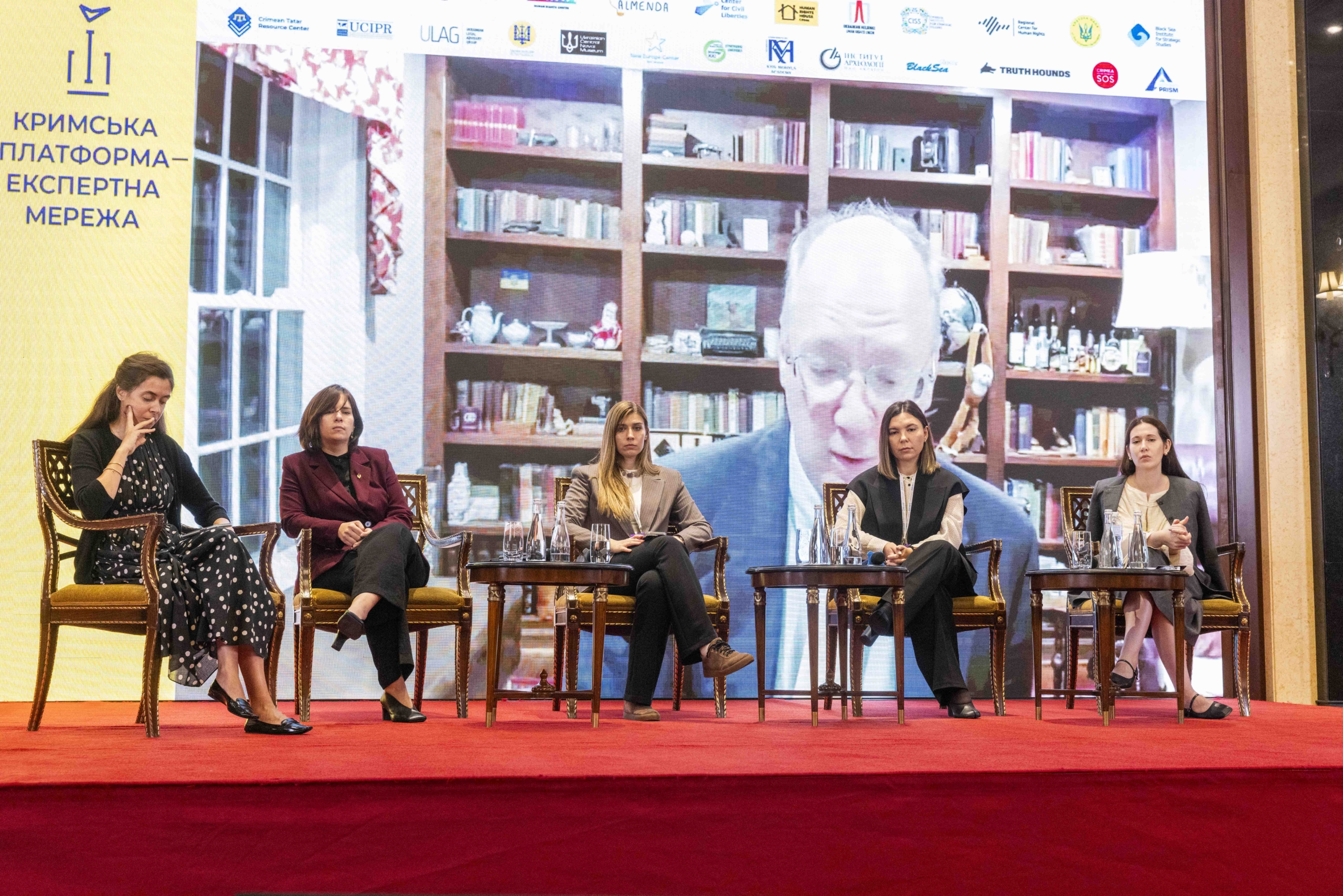
During the third panel discussion, “The Trophy Economy and Russia’s Colonial Policy in the Occupied Territories of Crimea, Eastern and Southern Ukraine”, experts discussed the systematic looting of Ukrainian resources. Deputy Director of the Institute for Middle Eastern Studies Serhii Danylov emphasised that Russia even uses children as a means of blackmailing their parents: “Children are raised in the spirit of fascism, with Putin as their father. The occupier also uses housing as a means of blackmailing the local population“.
The Head of the Center for the Study of the Occupation, Petro Andriushchenko, warned of the threat of famine in the occupied territories as early as next year due to the seizure of crops and the lack of resources for new sowings.
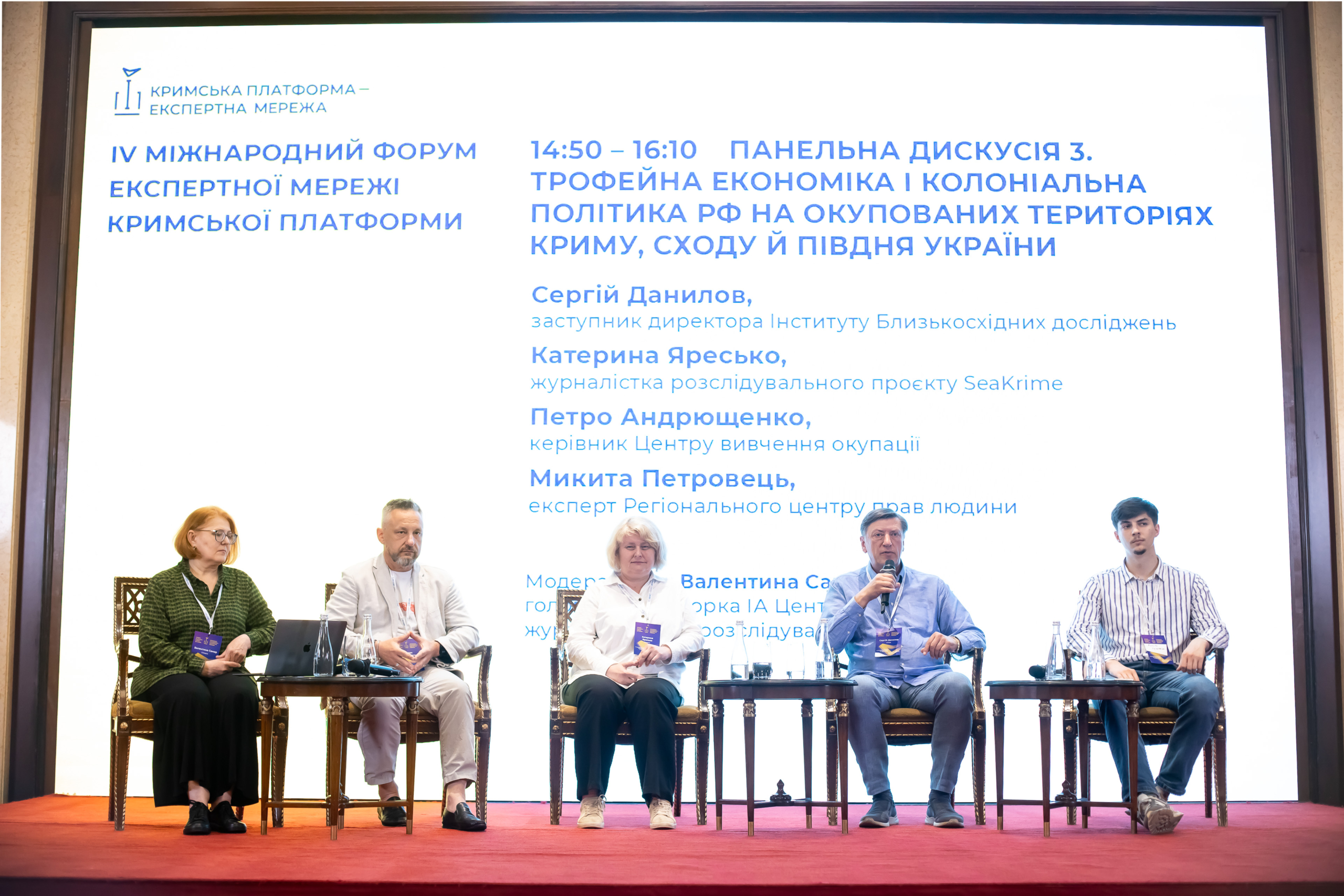
During the fourth panel, “International Support Amid Prolonged Russian Aggression and Occupation: Partners, Tools, and Opportunities”, participants discussed challenges and ways to increase international pressure on Russia. The discussion was moderated by the Head of the Board of the Human Rights Centre ZMINA, Tetiana Pechonchyk.
The Chairman of the Mejlis of the Crimean Tatar People, Refat Chubarov, emphasised that hundreds of thousands of people remain in Crimea awaiting liberation: “These people remain loyal to the Ukrainian state. They closely follow events in Ukraine and around the world. It is extremely important for them to see that the international community has not forgotten about Crimea“.
Serhii Shablii, Head of the Council of Europe, Human Rights and Gender Coordination Department of the International Organisations of the Ministry of Foreign Affairs of Ukraine, emphasised that over the years, Ukraine has created platforms for recording and documenting crimes committed by Russia in the temporarily occupied territories, which will be of great importance at the international level.
“The figures from internationally recognised monitoring mechanisms form the basis for the international responsibility of the aggressor country,” stressed Serhii Shablii.
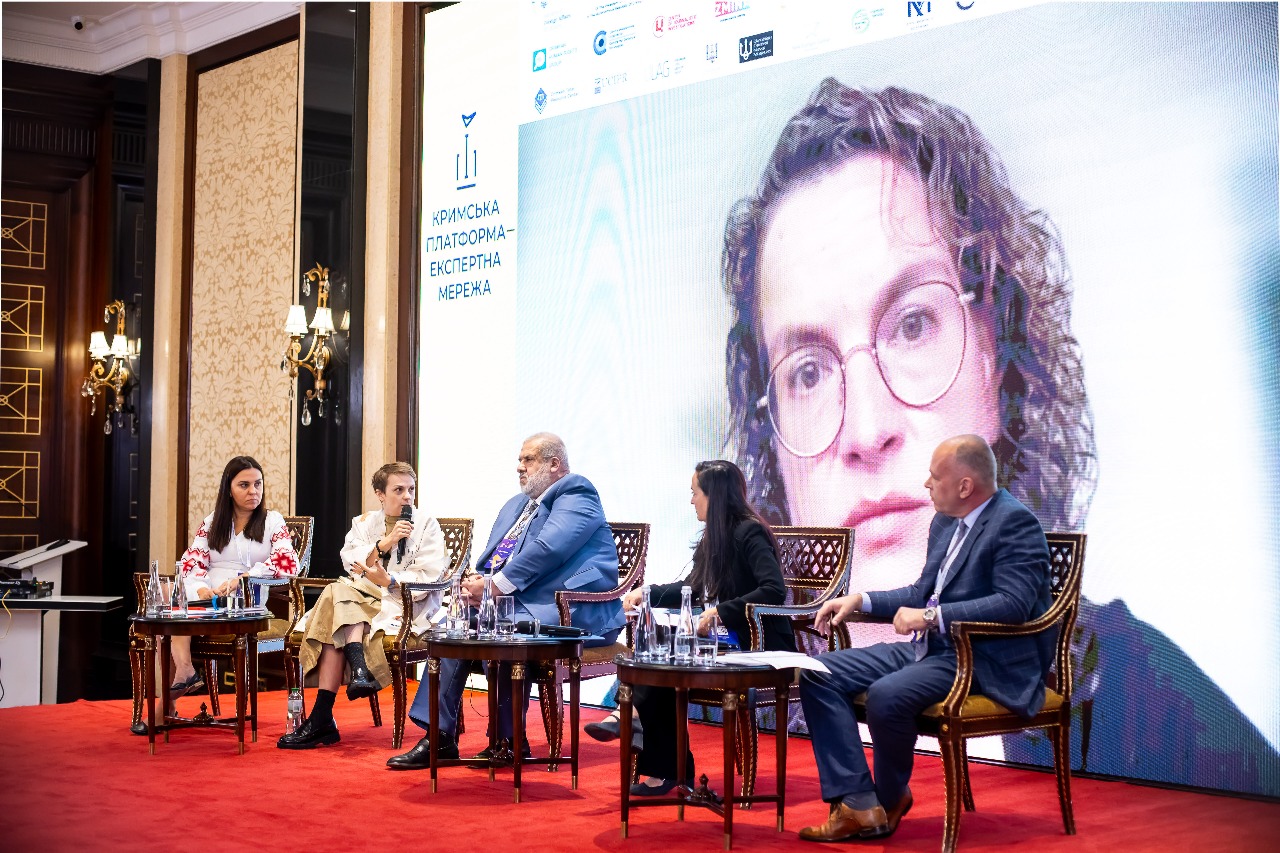
The Head of the UNESCO Office in Ukraine, Chiara Dezzi Bardeschi, noted that UNESCO has been monitoring the situation in occupied Crimea since 2014. Despite the absence of access to this territory, information has to be gathered through partners.
The Head of the UNESCO Office emphasised that the organisation has currently verified more than 500 cultural and artistic heritage sites that have been damaged by Russia in the occupied territory.
Ukrainian journalist, executive director of the Public Interest Journalism Lab, co-founder of The Reckoning Project: Ukraine Testifies initiative, Natalka Humeniuk, noted that Ukrainian media should pay more attention to the issue of life in the occupied territories.
Photo credit: Crimea Platform Expert Network
For reference
The Crimea Platform Expert Network is an international community of over 180 members from 33 countries. It brings together independent experts, diplomats, civil society representatives and academics who research security, human rights, economic and environmental issues related to the temporary occupation of Crimea. The network develops analyses and recommendations for governments and international organisations, contributing to the formation of policies on the de-occupation of the peninsula.
If you have found a spelling error, please, notify us by selecting that text and pressing Ctrl+Enter.




